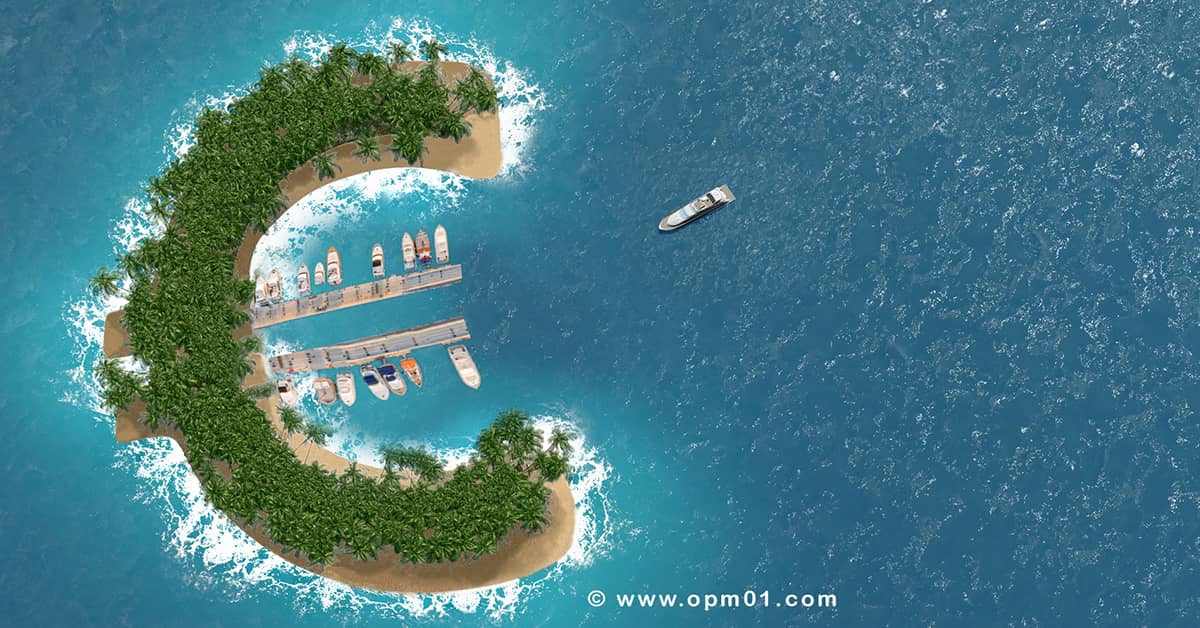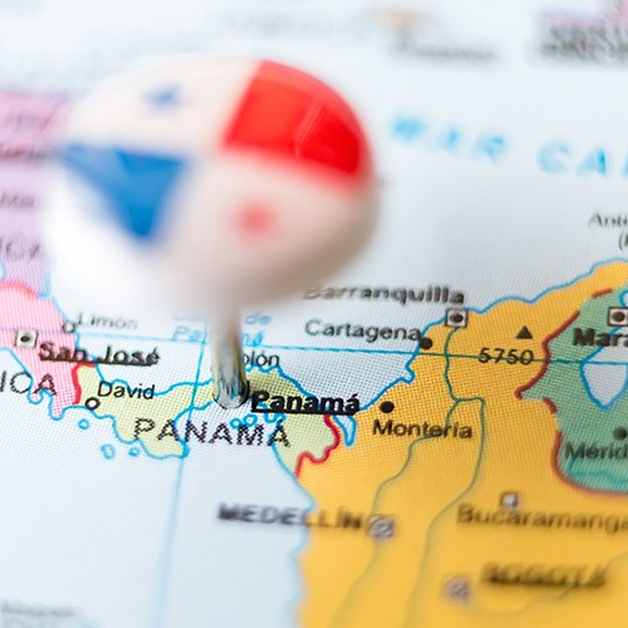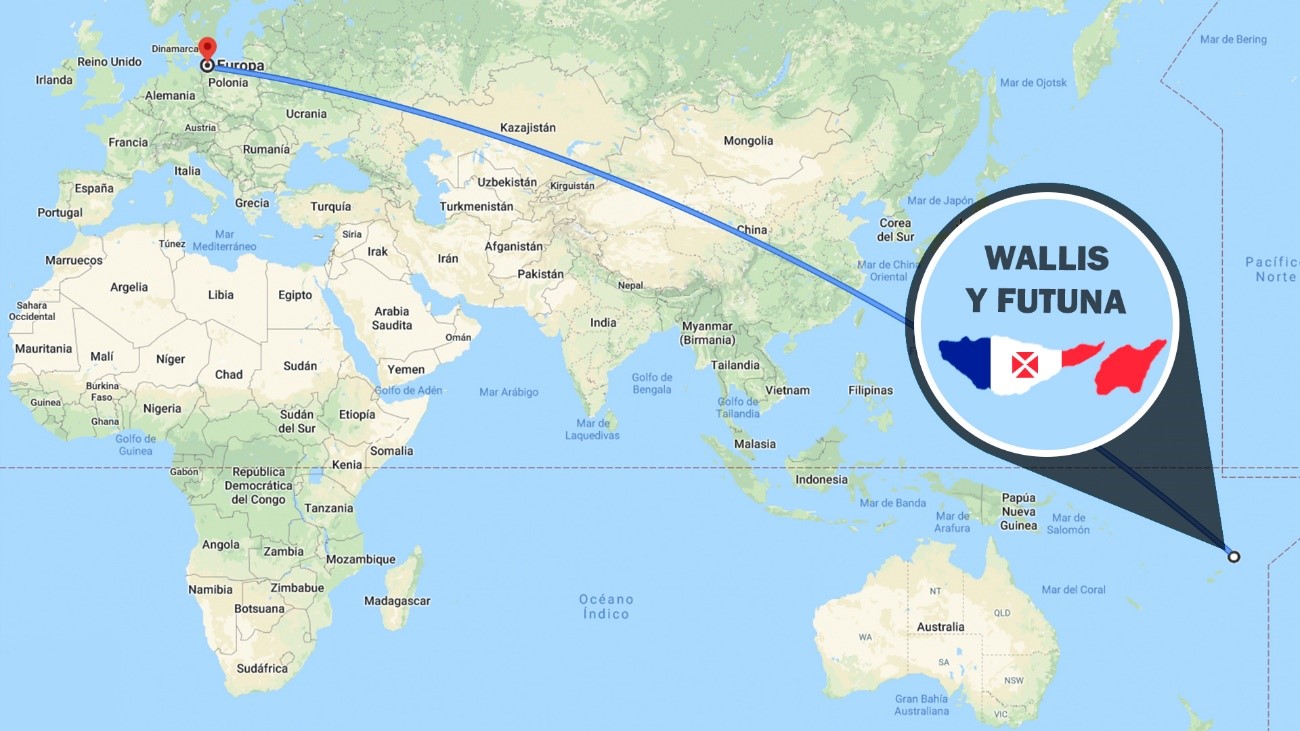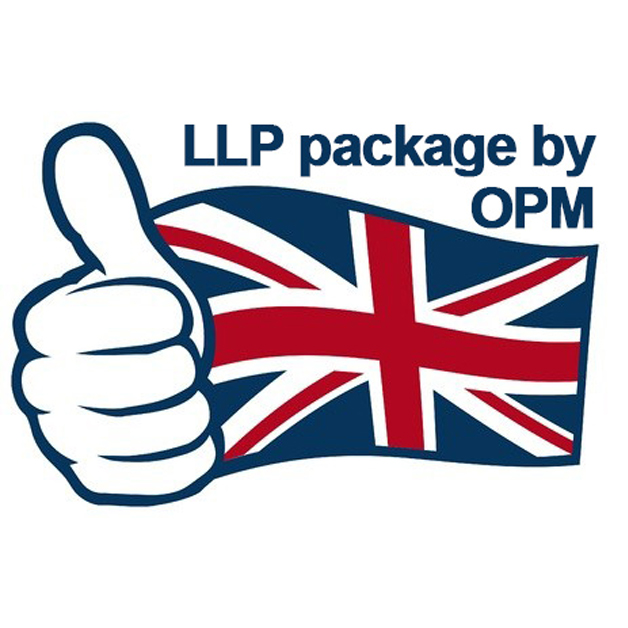
The laws that allow the incorporation of offshore companies, i.e. companies registered in a tax haven that allows to operate at zero taxes, are almost all inspired (I’d say copied) by the law of Delaware, United States and almost all, amended in the last years to comply with national and international laws against money laundering and the financing of terrorist or criminal activities. Among the few jurisdictions that haven’t changed the laws, there is precisely Delaware, but we will see later why these companies are barely usable.
On the Web, you can find hundreds of offers from offshore companies with a variety of prices, some with hidden prices, others with balanced prices (if you’d like to see ours, click here), but incorporating a company isn’t a walk (picnic) and thus, essential to be guided, with the right procedure, before you can choose. We’ve been offshore specialists since 1992 and with our texts, we always do as much to advise you not just on how to sell products. For this reason it’s important to read this article and others that you can find on the blog and frequently asked questions. There will surely be doubts and we’re at your disposal to answer you by email. If you want a telephone consultation, you have two options: Request and pay for the service of your choice and benefit from a free telephone consultation with the lawyer Caporaso, or request and pay only the consultation.
Table of Contents
What does "offshore company" mean?
It’s a company registered in a country, usually abroad (offshore), considered a tax haven which, in order to develop its economy, uses special legislation that does not provide taxes for activities carried out outside the national territory. Offshore companies are generally easy to register, have few administrative or tax obligations and allow some anonymity. In Addition, these jurisdictions in which offshore companies are registered are not very collaborative and hardly respond to requests from foreign courts. The creation of an offshore company is a simple process that takes only a few days. It’s not necessary to open offices or hire staff, although a certain presence (Virtual Office and mobile phone line) gives confidence to banks and customers. In the event that the owner does not wish to appear, many law firms (including ours) provides a fiduciary shareholder, in addition to the Trustees, which is customary. However, it’s necessary to identify the client with a KYC (know your customer) form, a telephone conversation and the sending of an identity card, electricity, water bill, telephone or others to establish his place of residence. Customers can also be verified, at our discretion, in the World Check System.
What are offshore companies for?
Contrary to what the media and some governments say, offshore companies are legal, but not designed to conceal illegal activities or as a kind of pirate flag. In some cases, authorized or unregulated activities in a given country may be carried out while they are illegal or strictly regulated in other countries.
Offshore companies are generally a valuable tool to:
- Open bank accounts abroad and/or invest on the stock exchange, be able to conceal the real beneficiary if necessary (divorce, seizure of assets, etc.);
- Participate in other companies by concealing real partners for confidentiality reasons.
- Buy and sell products to your national company or other companies, by billing the desired price to be competitive;
- Charge services without paying taxes;
- Protect your assets in Italy or abroad;
- Avoiding judicial seizures;
- Avoid inheritance rights and secure a better future for your family;
- Create an economical alternative in total anonymity;
- Reduce the tax burden;
- Invest abroad.
It’s important to keep in mind that in some countries, hiding assets or bank assets from tax authorities is a crime: If you reside in one of these countries (such as Spain), you must enter the shares or bank accounts in the tax return. In this case, we recommend relocating your business by moving abroad. Panama offers friendly countries (including Italy) a permanent residence obtained at low cost and within a short period of time.
Why Incorporate An Offshore Company?
The incorporation of an offshore company continues to be one of the best solutions for those who are trying to create an international business, protect their assets and reduce the abusive tax burdens that reign in most countries.
Offshore companies are structures registered first of all in a jurisdiction with low or zero taxes. These jurisdictions count on laws that are very favorable for legal or physical persons who establish a legal residence there. The idea is to attract greater foreign investments toward these territories, which are usually very small and without a lot of natural resources. In exchange, they offer very low taxes, since the business of these offshore companies are always made outside the jurisdiction.
Creating an offshore company is a relatively simple and quick process.
Furthermore, opening an office isn’t essential; nor is hiring personnel. In case it’s needed, it’s not even required to give the real owner’s name, but a nominated shareholder’s name may be employed.
Various campaigns have been launched in recent years against offshore companies. Some communication media have attempted to relate these company structures to the economic problems of these countries, to allege that the wealthiest people supposedly use these tax engineering operations to pay less taxes. These same media don’t recognize that political corruption, the waste of public funds and an increase in military expenditures that obstruct economic growth in these countries. In reality, international laws allow these people to move their income, legally obtained from anywhere in the world, therefore, there’s nothing illegal about creating and using offshore companies.
Another criticism of offshore companies is that they can be used for money-laundering. Perhaps in some occasion a person has used — as one of his strategies for laundering assets — this type of structure, but it’s completely wrong and unfair to put offshore companies and illicit activities in the same bag.
All these campaigns to discredit offshore companies could increase in the near future. The countries who put the heaviest tax burdens on their citizens will continue to approve new laws to prohibit these citizens from enjoying the advantages of the offshore world. These governments continue without understanding that, while they set higher taxes and increase minimum wages, the more attractive these territories which work to maintain tax laws that encourage foreign investment and the creation of offshore companies, will become.
The 10 greatest advantages for those who use an offshore company are:
- Low or no tax rates;
- Simplified commercial book-keeping or, in some cases, completely absent;
- It’s not required to declare income;
- Greater privacy in banking operations;
- Stronger patrimony protection;
- Optimization of production costs;
- Possibility of using nominated directors and shareholders;
- Lower cost of personnel, covered by offshore contracts;
- Prestige of an international structure;
- Possibility of creating a “tesoretto” or extra income sheltered from the Treasury Department, co-editors, possible demands or claims.
Panama, the best jurisdiction for incorporating an offshore company
Panama is considered to be one of the best territories in the world for incorporating an offshore company. This country is to the North of South America and can depend on the most used interoceanic waterway in the world: the Panama Canal. Its political stability and economic growth have transformed it into one of the favorite destinations for foreign investors.
There has been a law in Panama since 1932 that protects the creation of offshore companies. They can be managed from any place on the planet. All offshore companies registered in Panama are exempt from taxes on earnings obtained outside the territory and there’s no need to present balances or income tax returns. Caporaso & Partners, headquartered in Panama, in addition to incorporating your company, can offer you all those services necessary to help make your company work internationally and open bank accounts: mobile phones from Panama, SMS, proof of address for the banks, opening bank accounts, resident directors with references, etc.
If you’d like to incorporate a company in Panama, click here.
How does an offshore company operate?
Like any business, but almost without bureaucracy. Even if you’re asked to keep the accounts, no one will ask or deposit them, much or less someone will ask you how you spent the money earned. You can open the company in any jurisdiction of your choice and the account in another country, including Europe. In practice, there are no bureaucratic requirements, with the exception of those that can be requested by the banks as well as the annual state tax and resident agent payment. If you have partners, respect the rules, but it’s necessary to explain everything to the lawyer, before the creation, so that all members can be protected.
Which jurisdiction to use for your offshore company?
In summary, we could say that all offshore companies are equal. So why choose one jurisdiction over another? For various reasons, the main ones are:
- Language of the Constitution: This factor could save on the future costs of legal translations, depending on the area where the business will operate.
- Approval of jurisdiction by banks: Banks pose many problems with African jurisdictions (Liberia and Seychelles) and with those in the Middle East (Lebanon and the Arab Emirates) that are considered to be at greatest risk due to the origin of capitals. But the companies that the banks least like are those of the United States, because if the bank does not inform the authorities of the financial assets of the citizen, resident or the American company, it risks receiving millions of fines.
- Approval of the jurisdiction by clients: It’s possible that some customers do not like to receive invoices and make payments to offshore companies for the fear of controls by tax authorities. If you can’t convince your customers, then you can request a written request from a reputable accountant and send it to him.
- Related Services: To operate a company, it’s not only necessary to write the Constitutional Act: once the legal existence of the company has been demonstrated, it will be necessary to give life to an office, staff, telephones, website, etc., so that both banks as well as customers knows where to find it. Therefore, establishing a company on a small Caribbean island where communications are poor and requesting an additional service they'll try to “pluck it." It can be fatal. The added value of a company resides in the services and solutions that the agent can provide. That is why we recommend Panama: We’re in Panama, we’re from Panama and have been operating since 1992 in Panama.
- We don’t advise companies in Liberia, Seychelles, most Caribbean Islands, United Arab Emirates and many offshore jurisdictions that are generally more bureaucratic, do not offer good services or communications. In any case, if you need it, for a particular reason, we can help you, but we do not guarantee services such as phone, address, accounting, etc.
Offshore company of Panama
 Panamanian companies have their legal base in one of the oldest offshore laws dating from 1932. Although the bearer’s shares were removed a few years ago, in practice, shareholders are anonymous because the only person to whom their data belongs is the resident agent, the lawyer who constitutes the company. The choice of your trusted professional is therefore of fundamental importance. Panamanian companies that do not operate in the country are exempt from taxes, not required to submit balance sheets (even if they have to declare where they are kept) and/or tax declarations and may be administered from anywhere in the world. They must have a minimum of 3 and a maximum of 10 directors who may be individuals or companies. If the company is managed by another company, it gives the impression (especially to the banks) of wanting to hide something; So we do not recommend this. However, there is no need to worry because the administrators, if you like, we provide them included in the price. The only real compliance is the payment of an annual rate (single rate) and a resident agent (US) for a total amount of 600 euros per year, from the anniversary date of the company’s registration (calendar year).
Panamanian companies have their legal base in one of the oldest offshore laws dating from 1932. Although the bearer’s shares were removed a few years ago, in practice, shareholders are anonymous because the only person to whom their data belongs is the resident agent, the lawyer who constitutes the company. The choice of your trusted professional is therefore of fundamental importance. Panamanian companies that do not operate in the country are exempt from taxes, not required to submit balance sheets (even if they have to declare where they are kept) and/or tax declarations and may be administered from anywhere in the world. They must have a minimum of 3 and a maximum of 10 directors who may be individuals or companies. If the company is managed by another company, it gives the impression (especially to the banks) of wanting to hide something; So we do not recommend this. However, there is no need to worry because the administrators, if you like, we provide them included in the price. The only real compliance is the payment of an annual rate (single rate) and a resident agent (US) for a total amount of 600 euros per year, from the anniversary date of the company’s registration (calendar year).
Wallis Island offshore companies
 Wallis Island is located in the Pacific Ocean, at 22,000 from Paris; however, it’s part of France, since it belongs to what is known as the “French overseas community” or FOC. In this territory, with a total surface area of barely 96 km2, no taxes are applied, and it has become one of the most advantageous sites for establishing offshore companies and bank accounts, since the company and bank account are domiciled in France (Europe), without being subject to high tax burdens.
Wallis Island is located in the Pacific Ocean, at 22,000 from Paris; however, it’s part of France, since it belongs to what is known as the “French overseas community” or FOC. In this territory, with a total surface area of barely 96 km2, no taxes are applied, and it has become one of the most advantageous sites for establishing offshore companies and bank accounts, since the company and bank account are domiciled in France (Europe), without being subject to high tax burdens.
In Wallis, it’s possible to enjoy high speed internet, thanks to the Tui Samoa cable, so that during the last five years it has become the home of more than a few businessmen who choose this paradise on Earth to live in, since they can manage their businesses from there, online. On Wallis, health and education are completely free, for the whole world. Up to now, it hasn’t been affected by the New Coronavirus pandemic. The climate is tropical, with year-round temperatures that oscillate between 25 and 30 degrees Celsius.
The currency used in Wallis and Futuna is the Pacific Franc, which is the second used in the French Republic. This currency has a conversion rate set to the Euro, which facilitates accessing the markets in the Euro zone without the risk of exchange rates. The Pacific Franc is issued by the Overseas Issuing Institute and, these days, 1 Euro equals approximately 120 Pacific Francs. However, bank accounts can be in EUR, USD,CAD and AUS and the destination will appear as France without arousing the suspicions of the tax authorities.
French offshore companies registered on Wallis Island
Wallis Island is benefited by a special tax regime. This territory isn’t subject to French tax laws, for which it has become a very attractive place for registering offshore companies and offshore bank accounts.
No type of income tax exists there, since the citizens aren’t subjected to the Generalized Social Contribution (GSC), or to contributing to the reimbursement of the social debt (CRSD). Nor are taxes on added value, inheritance, and fortunes. Actually, the tax system is based on indirect taxes, especially customs (tariffs and entrance taxes, taxes on internal alcohol consumption, hydrocarbons, tobacco, special weapons, etc.)
The offshore companies registered on Wallis Island must pay the “tax on inactive businesses”, since they are domiciled there, however, without exercising an in loco activity, which is known in the offshore world as the Annual Franchise Tax.
It’s also convenient for shipowners to register their ships under the flag of Wallis and Futuna, so they can benefit from a more flexible work legislation and zero taxes.
Costs:
| SARL company incorporation: | 3999.00 EUR |
| Bank account opening: | 1500.00 EUR |
| Head office: | 2400.00 EUR/year |
| Director: | 1200.00 EUR/year |
| Curriers: | 600.00 EUR |
| Total: | 9699.00 EUR |
History of Wallis Island
Wallis Island doesn’t even reach 10 thousand inhabitants. It was discovered in 1767 by Captain Samuel Wallis, who navigated the ship HMS Delfin. In 1886, it became a French protectorate and, in a referendum held in 1959, the citizens decided to become part of the French Republic under the condition of “overseas territory”, through which they could preserve their customs and beliefs.
Then, in 2003, after France’s constitutional reform, this territory passed to the state of “French overseas community”, one of the five recognized by Paris. Among the elements that stand out from the modification is that, now, Wallis Island can determine its own fiscal matters.
This island is one of three parts of the Kingdom of Wallis and Futuna, shaped also by Sigave and Alo, in the Futuna Islands. The King of Wallis is the most important political figure of the territory, although he has a Prime Minister and five ministers to support him while leading.

Nevis offshore company
 Nevis is one of the two islands that comprise the Central American Caribbean State. Along with St. Kitts, another important island, they are part of the Commonwealth Territory (Commonwealth of England), ruled by the Queen of England through special representatives named in the place. For its taxation system is considered a tax haven, however, it’s much more famous for its nautical record, which has a few thousand annual record. Nevis is a Government that in recent years, has put in place a strong tax competition, which offers fertile ground for the creation of offshore companies. It’s one of the states with the highest education rate, associated with an almost non-existent crime and an important insertion in the first positions of the UN’s classification with respect to individual freedoms. Nevis is a low-tax haven offering a zero tax regime for foreign earnings, which protects the privacy of every inhabitant and investor, both national and foreign. Regulated from the legislative point of view by the Anglo-Saxon common law, it has refined over the years its laws by allowing Nevis offshore companies to exploit a favorable tax system, for example to pay no taxes, even on profits generated abroad by companies registered in its national territory. Nevis has entered heavily into the global panorama of tax competition, for the ease of creating an offshore company, getting more and more success among the economic operators, also because of the characteristics related to companies and legal obligations for the start-up of Nevis offshore companies. There are three possible types of offshore companies in the Nevis region: Corporation, IBC and LLC. These three possibilities have common advantages, which are not often found in other tax havens. In fact, the complex panorama of international tax competition has permitted Nevis not to force offshore companies to pay social capital; They are entitled to issue bearer shares without compulsory formalities or notarized deeds; whereas there is no formal obligation to present accounting books and financial statements of the type of company, which is fully comparable for the others, to European companies; even this linearity and ease of general control of offshore company makes the small State of Nevis a great place to protect your capital from the absurd claims of large international depositors, which maintains a high tax burden and unbearable on citizens. The possibility for Nevis to carry out a firm action in terms of tax competition is born and develops through the incorporation of the norms of the English law and local regulation in the economic milieu. In recent years, Nevis has signed several bilateral agreements against double taxation, notably with the major western capitalist powers: Denmark, Sweden, Norway, United States and UK, making the small Caribbean country one of the few countries in commercial and legal entities with their own tax competitors. Therefore, in the global panorama of tax rivalries, we can add an additional jurisdiction where it’s possible, safely, to incorporate or transfer an offshore company: A tax haven that, through strict legislation in terms of privacy and a simple tax system, is completely included in the list of States that exert pressure on large depositors, which makes tax competition more equitable.
Nevis is one of the two islands that comprise the Central American Caribbean State. Along with St. Kitts, another important island, they are part of the Commonwealth Territory (Commonwealth of England), ruled by the Queen of England through special representatives named in the place. For its taxation system is considered a tax haven, however, it’s much more famous for its nautical record, which has a few thousand annual record. Nevis is a Government that in recent years, has put in place a strong tax competition, which offers fertile ground for the creation of offshore companies. It’s one of the states with the highest education rate, associated with an almost non-existent crime and an important insertion in the first positions of the UN’s classification with respect to individual freedoms. Nevis is a low-tax haven offering a zero tax regime for foreign earnings, which protects the privacy of every inhabitant and investor, both national and foreign. Regulated from the legislative point of view by the Anglo-Saxon common law, it has refined over the years its laws by allowing Nevis offshore companies to exploit a favorable tax system, for example to pay no taxes, even on profits generated abroad by companies registered in its national territory. Nevis has entered heavily into the global panorama of tax competition, for the ease of creating an offshore company, getting more and more success among the economic operators, also because of the characteristics related to companies and legal obligations for the start-up of Nevis offshore companies. There are three possible types of offshore companies in the Nevis region: Corporation, IBC and LLC. These three possibilities have common advantages, which are not often found in other tax havens. In fact, the complex panorama of international tax competition has permitted Nevis not to force offshore companies to pay social capital; They are entitled to issue bearer shares without compulsory formalities or notarized deeds; whereas there is no formal obligation to present accounting books and financial statements of the type of company, which is fully comparable for the others, to European companies; even this linearity and ease of general control of offshore company makes the small State of Nevis a great place to protect your capital from the absurd claims of large international depositors, which maintains a high tax burden and unbearable on citizens. The possibility for Nevis to carry out a firm action in terms of tax competition is born and develops through the incorporation of the norms of the English law and local regulation in the economic milieu. In recent years, Nevis has signed several bilateral agreements against double taxation, notably with the major western capitalist powers: Denmark, Sweden, Norway, United States and UK, making the small Caribbean country one of the few countries in commercial and legal entities with their own tax competitors. Therefore, in the global panorama of tax rivalries, we can add an additional jurisdiction where it’s possible, safely, to incorporate or transfer an offshore company: A tax haven that, through strict legislation in terms of privacy and a simple tax system, is completely included in the list of States that exert pressure on large depositors, which makes tax competition more equitable.
The Nevis companies also have the habit of creating twin companies (of the same name) with companies in Delaware or other States of the United States considered prestigious, but with which it’s almost impossible to open banks accounts abroad.
British Offshore Companies
 The British LLP Companies, or rather UK or United Kingdom companies, if used in a particular manner, can be, for all intents and purposes, considered offshore companies with zero taxation. The United Kingdom includes England, six counties in Ireland, Scotland, Wales, and Northern Ireland. The United Kingdom is much more than just England.
The British LLP Companies, or rather UK or United Kingdom companies, if used in a particular manner, can be, for all intents and purposes, considered offshore companies with zero taxation. The United Kingdom includes England, six counties in Ireland, Scotland, Wales, and Northern Ireland. The United Kingdom is much more than just England.
LLPs are limited liability companies administered in partnership through a written agreement that specifies how it will be administered.
Potentially, LLPs in the United Kingdom with two offshore companies acting as partners, won’t pay any taxes on the companies or personal income taxes in the United Kingdom, provided that the members or partners of the offshore companies don’t reside in the United Kingdom, and that they don’t carry out economic activities in or with the United Kingdom and that control of the LLP is exercised abroad. Taxation in the United Kingdom will, therefore, be qual to zero.
If the company doesn’t operate in the United Kingdom, the partners don’t pay taxes
The members or partners who don’t reside in the United Kingdom will pay income taxes on physical persons (or company taxes in case of a company), only on the profits obtained from economic activities inside the United Kingdom. Furthermore, the members of the LLP can take advantage of more than 100 treaties on double taxation signed by the United Kingdom.
An LLP (Limited Liability Partnership) of the United Kingdom with all partners (members or partners) not residing in the United Kingdom will have to declare their profits in their from operations in the United Kingdom in their income tax declarations; therefore, if there haven’t been any economic exchanges in the United Kingdom, the LLP’s income declaration in the United Kingdom will be presented blank. The balances of the partnerships, including activities abroad, must be archived at the Companies House.
British LLP companies are perfect for subjects NOT residing in the European Community, who want to undertake business in this economic area. The partners can be two natural or legal persons. Using two offshore companies as members or partners, anonymity can be obtained, but it can create problems with the banks that will want to know the (the final beneficiary); therefore, this operation can significantly increase the cost of opening a bank account. Instead, using two physical persons facilitates the relationship with the banks, but can create disadvantages with the automatic exchange of information if these are located in the European Community.
10 advantages of LLPs in the United Kingdom:
- Zero company taxes on the condition that the activity isn’t being undertaken in the United Kingdom. It’s not necessary to present reports, nor is an annual general assembly required.
- Zero income taxes if the members of the LLP carry out their activities outside of the United Kingdom.
- Authorized zero capital or minimum deposit
- Only two members are necessary to form an LLP in the United Kingdom.
- Quick registration, within 24 hours if done within 24 hours.
- An LLP in the United Kingdom must choose a unique name that can’t be similar to an already existing LLP, company name or names.
- An LLP in the United Kingdom must have a legal address which we will furnish in a packet together with a landline or mobile phone, whichever you prefer.
- An LLP in the United Kingdom must have at least two members. The United Kingdom allows both private or legal persons and these must not be residents. We furnish the resident secretary.
- LLPs in the United Kingdom must not have directors or managers because the members act as administrators, even though it is possible to nominate an administrator if you so desire.
- Registration and member data are public.
All-inclusive packets
- British LLP companies with physical person foreign partners
Initial price: EUR 1,600.00
Annual renewal of company and services: EUR 870.00
- British offshore LLP companies with foreign legal persons partners
Incorporation, legal headquarters, postal address (including any proof of address), landline or mobile phone as desired, company secretary, 2 corporate partners (Panamanian offshore company), Agreement between partners.
Initial price: EUR 4,100
Annual renewal of company and services: EUR 2,070.00
- British offshore LLP companies with foreign legal persons partners (company and foundation)
Incorporation, legal headquarters, postal address (including any proof of address), landline or mobile phone as desired, company secretary, 2 corporate partners (Panamanian offshore company and foundation), Agreement between partners.
Initial price: EUR 5,100
Annual renewal of company and services: EUR 2,170.00
Delaware companies, United States
 Delaware LLC companies and other States, such as Nevada, offer the advantage of not being blacklisted. Therefore, an American company, for example, Delaware LLC, may charge in Italy or Europe without any problems. With a series of subterfuges, the Delaware Company becomes totally tax-free. The disadvantage of Delaware LLC is that many offshore banks no longer open accounts to American companies.
Delaware LLC companies and other States, such as Nevada, offer the advantage of not being blacklisted. Therefore, an American company, for example, Delaware LLC, may charge in Italy or Europe without any problems. With a series of subterfuges, the Delaware Company becomes totally tax-free. The disadvantage of Delaware LLC is that many offshore banks no longer open accounts to American companies.
Anglo-Saxon legislation, in a similar way between the U.S, United Kingdom and the former colonies, offers certain types of corporate structures with the benefit of the tax exemption, granted by the laws of Anglo-Saxon companies, to companies that operates outside their social residence. With such a structure, we can fully enjoy, a zero profit tax system, without incurring the problems and typical limitations of companies established in offshore jurisdictions, which offers other benefits, although more subject to controls and inspections, and sometimes not welcome in financial institutions.
The State of Delaware does not apply state taxes to companies operating outside its territory and which are non-resident shareholders in the United States, in the case of limited liability companies (therefore, other forms of companies such as the company, etc. are excluded), they must not make a tax return to the state. However, keep in mind that if you open a bank account in the United States or have business with American companies, Delaware LLC becomes a resident and must file a federal income tax return. Keep in mind that the United States is a signatory to a treaty for the exchange of information with the European Union and most countries. Therefore, if you do not configure Delaware LLC anonymously, the information you may provide to a U.S. registered agent is subject to disclosure (this doesn’t happen anonymously with us).
The deadlines for incorporation into Delaware ranges from 7 to 10 days from the receipt of the transfer to the sending of the Apostille documents.
You should know that when you’re working with a LLC company located in Delaware or another U.S. State. with exempt taxes, the costs of Apostille documents required after the Constitution are extremely costly. In addition, many foreign banks do not open accounts to American companies.
It’s often necessary to combine a twin company from Nevis with a Delaware company to be able to operate fully.
Consult us before requesting for a U.S. LLC. With a brief telephone consultation, you will avoid mistakes that could cost you more in the future.
What are the advantages of opening a branch of an offshore company in my country?
Firstly, it’s important to bear in mind that, in this case, the branch is subject to the controls and laws of your country, as in the case of a normal business. But get a SA at just over 2000 euros. Foreign law firms can register in almost all countries.
In most countries, there are two different solutions: The representative office and the identification of the company in public registers. In the first case, the foreign company only opens a tax code or number and position of VAT, etc. acting as the representative office of the foreign company: In this case, the accounting requirements are very simple; only an opening communication on stamped paper must be presented to the local Chamber of Commerce when this office is opened. In some cases, it’s also necessary to designate a resident tax representative. In the second case, the foreign company, while retaining its name and extension (LTD, LLC, Corp., etc.), becomes a SA with all the obligations it entails. The company must appoint a Director in the country, while remaining subject to foreign law on bankruptcy or failures. The role of the tax representative is limited according to the needs of the partners.
When can one open a branch of an offshore company in a third country?
The use of offshore companies to operate in certain countries with a high tax burden has become problematic, as it generates some distrust i.e. sometimes difficult to counteract. In such cases, it’s necessary to use a branch of an offshore company established in a country not listed on the blacklist. Generally, we often prefer this structure to the European subsidiary, which implies many bureaucratic obligations. The advantages of a branch in a non-European country, which isn’t on the blacklist, is not expensive and bureaucratic requirements are minimal. The administrator, a certificate from the chamber is provided and all documents are apostilled.
We can offer you the mailing address and the VoIP telephone number service.
What do you obtain after applying for an offshore company?
- The status of the company which is the constituent document of the company, in the language of the country in which it was created and apostilled. Some banks may also request additional documents which must be ordered separately.
- For Panamanian companies where subscribers are entitled to 1% of the shares, the subscription transfer (transfer of members) is provided. This document, which should not generally be presented to the banks, is a document signed by the subscribers that guarantees that you own 100%.
- Power of Attoney Apostilled, is the general power that allows you to operate anonymously on behalf of the company, if you have chosen a designated administrator. This Plenipotentiary power must be used with caution because, when not justified, it may suggest to the tax authorities that the holder is the real beneficiary of the company; Therefore, it’s not advisable to use it in the country of residence if it has not declared the company. This power must be presented to the bank where the account will be opened, on the understanding that if the bank is domiciled in a tax haven that does not agree with its country of residence, it will be covered (at least in part) by bank secrecy. For contracts signing, you can appeal to our directors, because in case of litigation, the company will ask or respond and not the natural person. To buy or sell a property, in the country where you live, name an accountant or a trusted lawyer as a representative with limited purchasing powers, while for sales you can get a specific power from time to time (this is a little more expensive, but safer to keep anonymity). If you open a branch, we will prepare a separate power of Attorney for the tax representative. Remember that lawyers have the privilege of secrecy between the lawyer and the client, unlike accountants. If you use a third person, pay attention to your choice.
- The annual tax paid to the Government shall be included for the first year or, in the case of Anglo-Saxon companies, for the remaining part of the calendar year.
- Registered shares guaranteeing the ownership of the company.
Note: The Apostilling of each document consists in certifying the authenticity of the signature and the legal quality of the official who signed the acts, certificates, trained in the Italian State and the value abroad, which occur in the countries that have acceded to the Hague Convention.
The Hague Convention of October 5, 1961.
Law of 20 December 1966, n. 1253
Countries that have not acceded to the Vienna Convention needs the documents to be sealed by their Embassy, consulate or in a friendly country. Therefore, the cost of this service may vary depending on the country. Europe has acceded to the Hague Convention.
There are a number of factors that have caused these huge price increases of car insurance policies. As from June 1 2017, the Insurance Premium Tax (IPT) has been increased by 2% to a staggering 12%. This is a tax imposed by the government on all kinds of insurance including vehicle, pet, home and life insurance policies.

